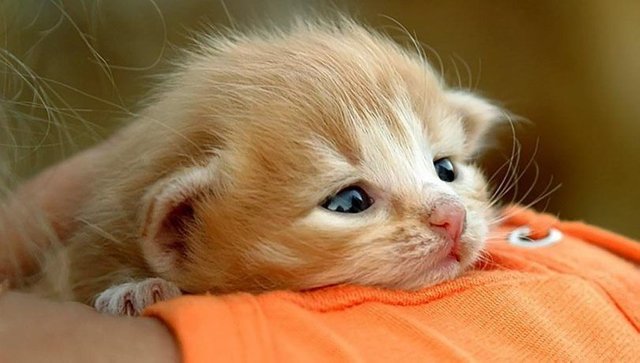Do we stop breeding pets? Many moralists say (yes)

Ninety percent of Britons consider their pets to be a family member and 16 percent have already listed them in the last census in Britain. But recent research in the field of animal sentiment has raised doubts about the ethics of pet-raising.
The story begins when a man enters a plastic bag full of newborn mice that Dr. Jessica Pierce, a bioethics specialist, saw while she was in a well-known pet store in the United States. The purpose of the doctor's visit to this shop was to buy a pet for her daughter, but the sound of the small mice from the plastic bag held by the man who seems to have brought it for sale to be either a commodity offered to those who want to buy or a snack for the shop also offered for sale. The doctor did not ask about the fate of the mice, but that scene has plagued her since then.
"The mice have a sympathetic feeling toward each other, and this is what research has shown when the mice were removed from their mothers, no doubt deep pain," she says. "It was a slap that made me wonder how we could do such a terrible thing."
After this incident, in 2015 she wrote a book called "Run, Spot, Run", in which she presented her own ideas about buying pets. In this book, the doctor takes us to a number of realistic scenes that most people do not stop as the cause of the animals that are killed in order to prepare the meals of dogs and cats, or those farms packed with small puppies, which aims to breed dogs of pure and non-hybrid in an unhealthy environment, You simply put in a bag or even an insect that is placed for you in a small box.
Pet grooming is problematic for several reasons, the most important of which is that you deny the animal's right to self-determination. We simply bring them into our own lives for our personal desire to do so, and then we tell them what they eat, what they wear, where they live and how they act, but rather that we give ourselves the right to decide whether to keep her genital organs.
For centuries, human beings have been eating their meat and wearing their skins and fur. But the order of raising pets is different from the human uses of animals in the past. We say that there is a feeling that binds us to them. The figures show the prevalence and attachment of humans to raising pets.
For example, the value of the pet market up to 2016 in Britain is 50 billion pounds sterling, worth US $ 66 billion, or equivalent to 50 billion pounds sterling also. Surveys in early 2016 show that 12 percent of pet owners love them more than their parents, 9 percent love them more than their children, and 24 percent love them more than their best friends.
Another study indicates that 90% of them consider pets to be members of the family, and 16% in 2011 included them in the family at the last census in Britain.
The problem here is moral, because most people look at their relationships with pets," says Professor Hal Herzog, a psychologist at the University of Western Carolina and co-founder of a new branch of science called Anthrozology. "They consider her to be a family member or a friend and they do not think of selling them even if millions are offered to them."
Research shows that animals carry emotions despite their simplicity compared to a man with complex and phenomenal emotions. The goldfish we acquire has more complex feelings than what most of us think.
"The dogs are also human," neuroscientist George Berns wrote in 2013. "Whenever we consider these characteristics that we thought to be exclusive to humans, we would be more logical in We will deal with animals, and this will reduce our control over our destinies. "

Will the animals disappear 50 or 100 years from now?
Animal rights activists say they are winning victories. Many institutions that exploit animals for entertainment, such as "crawling," for example, are closed. Perhaps the last of these closed traps was the "Riding Bros." There are also calls for closure and review of zoos. We also see an astonishing increase in the number of British vegetarians, up 350 percent between 2006 and 2016.
Going back to raising pets is a modern phenomenon. Until the 19th century, animals were raised for living purposes and there was no emotional bond between people today and their pets. In the memoirs of a farmer in the Dorset region, written in 1698, a description of the relationship between humans and animals is found in the notes. "My old dog (Koon) was killed and we cooked him to take advantage of his bread. It was 11 pounds. "
The situation in the 19th and 20th centuries has changed, and the appearance of animals in urban areas is less than that in the countryside, and income that is no longer enough to meet our needs is enough, but more, and pet breeding is more desirable than ever before